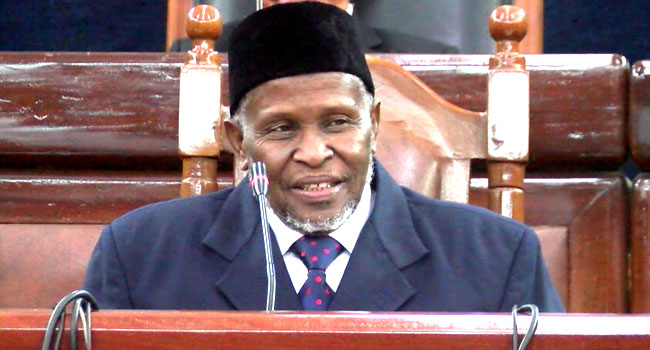A crisis of confidence is brewing in the nation’s apex court, the Supreme Court of Nigeria. This became public knowledge, recently, when 14 Justices of the uppermost temple of justice, in a letter addressed to the Chief Justice of Nigeria (CJN), Justice Ibrahim Tanko Muhammad, and leaked to the media a few days ago, made allusions to the fact that all was not well.
The tone of the letter became scary when the aggrieved Justices threatened to take further steps in the pursuit of their case if the Chief Justice fails to swiftly address the issues raised by them thus triggering apprehension that it could spiral into a full-blown constitutional crisis.
Some of the issues raised include a lack of accommodation for new Justices, lack of vehicles, supply of diesel, internet services to the residences and chambers of the justices, failure of the Chief Justice to carry the justices along in managing the affairs of the court, the deteriorating conditions of services generally and the state of the litigation department. Many of these issues appear beneath the dignity of the Justices to fight over but it points to an obvious decay in the system.
In response to the letter, the CJN blamed the identified challenges on the shortage of funds and the prevailing economic conditions. He went further to assure the public that there was no hostility or adverse feelings among the Justices of the Supreme Court.
This newspaper is of the opinion that the development, real or imagined, should be of great concern to all well-meaning Nigerians. We consider the reasons given by Justice Muhammad for the cut backs in spending and the welfare of the Justices as not sufficiently tenable. We are also of the opinion that the N120 billion budgeted for the Judiciary in 2022, higher than in any previous year, if judiciously applied, was substantial enough to provide the services being complained about by the Justices.
Even of greater concern, in our opinion, is the growing trend of a sitting Chief Justice trying to consolidate power by centralising and concentrating all decisions and budgetary spending in his or her office. We recall that some past Chief Justices went as far as hiring consultants to advise and manage the budget of the Supreme Court and that of the National Judicial Council.
On the surface, though, this crisis appears to be a fight over money and the control of the budget of the Supreme Court, which has for some years now, been shrouded in secrecy. More than that, this simmering crisis, which has been long in coming, is a reflection of the failure of the Supreme Court to assert its independence and insulate itself from politics, politicians and the overbearing influence of the executive arm of government.
We refer to the circumstances surrounding the emergence of Justice Tanko Muhammad as the Chief Justice, the invasion of the homes of some Supreme Court Justices, purportedly carried out by security agents as well as similar humiliating court and media trials of these Justices. The bad blood these unfortunate incidences generated is beginning to spill over.
The Justices said so much when they indicated in the letter that “We have had a full dosage of this fusillade of unwarranted and unprovoked attack on our judicial officers, and even facilities across the country, and we say, enough is enough.”
It is of interest that by choosing to wash their dirty linen in the public through a leaked letter, this same Court has effectively invited scrutiny not only from the general public, but from the country’s anti-graft agencies of the goings-on in that perceived citadel of justice.
Already, the Senate has initiated moves to intervene in the matter before it gets out of hand. The Senate President Ahmad Lawan has directed the committee on Judiciary, Human Rights and Legal Matters to reach out to the Chief Justice and the other justices. The Body of Benchers has also set up a seven-man committee headed by a former Chief Justice, Mahmud Mohammed, to wade into the crisis. The Nigerian Bar Association (NBA), released a statement calling for transparency in the budgeting and procurement processes in the judiciary. The NBA reiterated the need for judicial reforms.
While we await the response of the anti-graft agencies to the allegations contained in the letter, this newspaper is persuaded to recommend an extensive reform of the Judiciary aimed at insulating the Supreme Court from politics and reducing the antagonistic relationship between the executive and judicial arms of government.
A good place to start, in our view, would be in the procedure for appointment of a Chief Justice. Best practices dictate that it should be at the discretion of the President with support from the National Assembly and not the vague language that makes the President a rubber stamp to the recommendation of the NJC. In the meantime, let there be order in the court.





